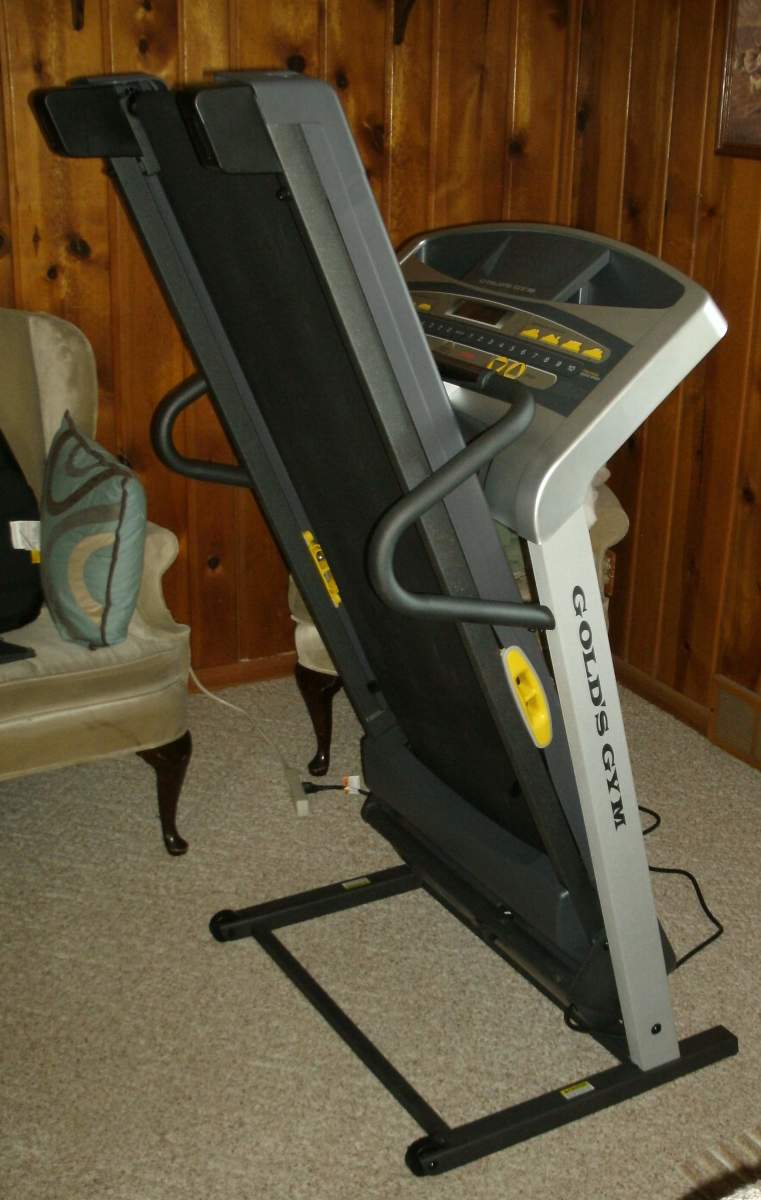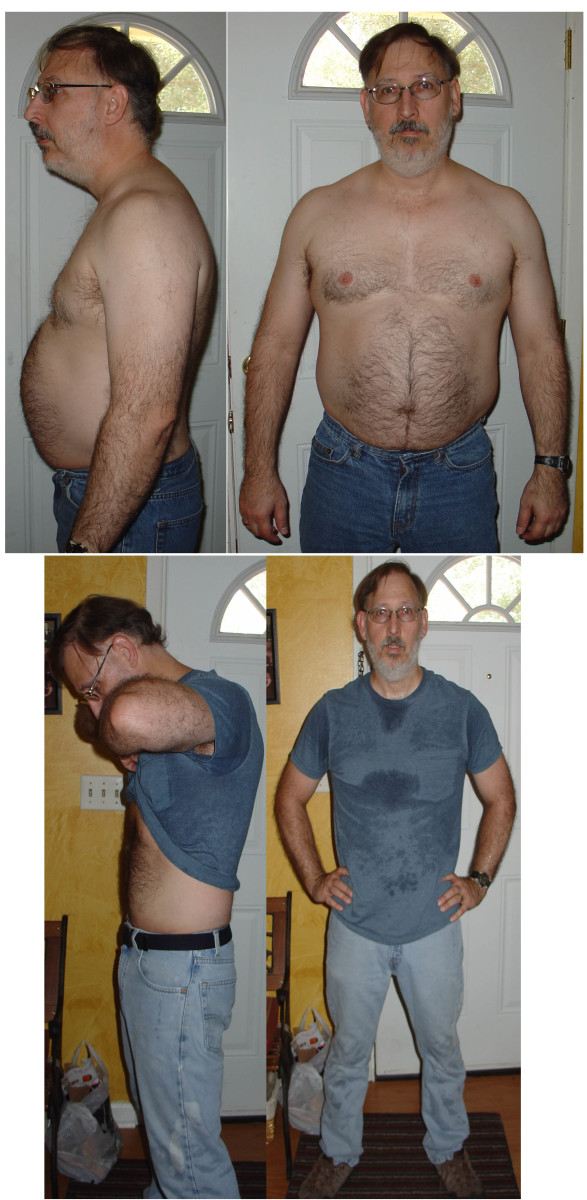Germs: The Cultural Phenomena of Germ Phobia
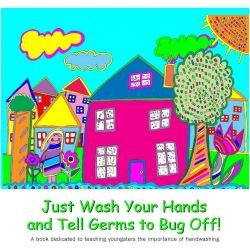
Are We So Afraid of Germs That We Are Making Ourselves Sick?
Last night's news had a story about shopping carts. Someone had tested the handles of lots of carts in four states. My native Iowa was one of them. They showed toddlers riding in the seats next to the handles and then told us that there are more germs, including e coli, on these than are in toilets.
Well, everyone in the story was very upset. I was a little upset, but then I thought. Surely this has been going on for the entire history of shopping carts. Why aren't there massive outbreaks of e coli, instead of the rare instances? Why aren't we all dead?
When my brother was a kid just after WWII polio was a huge scare. There were lots of kids who did get it. Years later, I remember being scared to death of pictures of kids in iron lungs that were in the Weekly Reader. Well, there was a mini epidemic in my parents' town. My mom was very clean and made sure that Micheal was clean, got enough sleep and other important things and then sent him out to play with the other kids. A woman down the street wouldn't let her son out to play, because she didn't want him to get germs. Well, yes, her son was the one who got polio and died. I wasn't born when that happened, but I heard the story often enough that it shaped my life. Said brother recently stayed with my father while I was away. I hear that he wouldn't dust the bookshelves without rubber gloves. Didn't he learn anything from his childhood?
On a smaller scale, when I was little, I often went out to the house next door in the dead of winter with no hat or coat and sometimes no shoes. Now Mom wouldn't let me out to play that way, but I did it briefly. My friend, Mark, was never allowed to set foot outside the door without a snow suit, boots, etc. I never got a cold and he had constant sniffles.
A. Guiterman. 1871- 1943

Strictly Germ-proof
I read this poem for English class when I was in the ninth grade. I never forgot it. In fact, I think I have lived my life by its philosophy. I am clean, healthy and not germ phobic!
We also see that germ phobia is not new to Americans and that others have been commenting on it for decades, at least.
BTW, at the bottom of this lens you will see part of another poem by this same author. I see a parallel, do you?
Arthur Guiterman. 1871- 1943
Strictly Germ-proof
THE Antiseptic Baby and the Prophylactic Pup
Were playing in the garden when the Bunny gamboled up;
They looked upon the Creature with a loathing undisguised;-
It wasn't Disinfected and it wasn't Sterilized.
They said it was a Microbe and a Hotbed of Disease;
They steamed it in a vapor of a thousand-odd degrees;
They froze it in a freezer that was cold as Banished Hope
And washed it in permanganate with carbolated soap.
In sulphurated hydrogen they steeped its wiggly ears;
They trimmed its frisky whiskers with a pair of hard-boiled shears;
They donned their rubber mittens and they took it by the hand
And elected it a member of the Fumigated Band.
There's not a Micrococcus in the garden where they play;
They bathe in pure iodoform a dozen times a day;
And each imbibes his rations from a Hygienic Cup-
The Bunny and the Baby and the Prophylactic Pup.
I know germs are real and they spread nasty diseases. We have to be clean and take care.
However, my thesis here is that Americans tend to be germ phobic. This at best makes unnecessary worry that is mentally unhealthy and at worst can make people physically unhealthy.
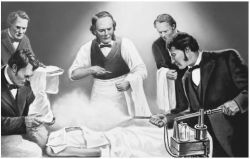
History of Germs in Hospitals
In the 1800's they didn't know too much about germs. A doctor would attend someone dying of an infectious disease, then go right to a mother giving birth, and not even wash his hands. Women died. In fact, hospitals were looked at a places where people went to die.
The discovery of the germ and its relationship to diseases has saved a lot of people lives, millions. It was a good thing. If someone were going to open me up exposing my insides I would want him or her to have the cleanest hands with cleaner gloves that haven't touched anything.
Even today hospitals are hot beds of disease; staff and lots of nasty things that could make sick people sicker. I want lots of hand washing and care in hospitals.
However, I used to work in an insurance company, with several nurses. They would stand at the bathroom sink, leave the water running while they washed (in spite of a drought) use a paper towel to turn off the faucet and another to open the bathroom door. Then they would go out and touch their computers and phones with bare hands. Should I have told them that the phones and computers had as many or more germs as the bathroom did? I just shook my head.
In my never to be humble opinion, that was just plan irrational. And an example of Americans being nuts about germs, as person after person starting using this custom.
Researching this lens:
1. I discovered that there is a rock band named Germs that has a lot of videos.
2. A lot of people have made some very funny clips about germs. Many of them help to make my point about the craziness of the germ obsession/phobia that has become America.
3. I found some that shed light on the actual facts about germs. They do exist, they can cause problems, just as they can help. You will find information and videos about germs amongst the humor.
An Example of Germ Phobia
I do not leave my purse on the floor of a public, or even private, bathroom as this woman did. I would think most people would know that.
However, no one in her family is sick. There is not a huge outbreak of disease in Iowa or the other three shopping cart states. So why the hysteria? Yes, it is a good idea to not leave your purse on the floor of a bathroom, but people do it all the time.
Note that the mother in the video is a germ a phobe. She drove herself to get rid of all germs, yet she didn't think of everything. Yet her family was healthy.
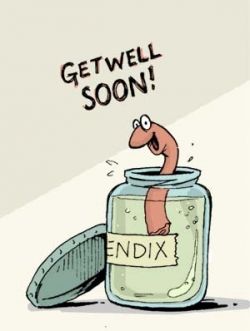
Not All Germs Are Bad; We Really Need Some
Hand Sanitizers Proven No More Affective Than Mother's Spit . This is a spoof from Great Britain, worthy of The Onion, and well worth reading for the laugh.
However, here is the deal. I read about ten reports about hand sanitizers. They all said something different. They gave effectiveness for killing germs from 99% to 40%. Even the nurse who reported 99% was clear that they weren't enough for things like blood and dirt. People still have to wash their hands. The danger is that some people will think that the sanitizers protect them from everything.
And not one of the articles I read gave any information that states that people who use these things are any healthier than people who don't. And isn't that the reason to use them, to be healthier? Unless of course, we acknowledge that the psychological issue of knowing that there are fewer germs is more important than actual health.
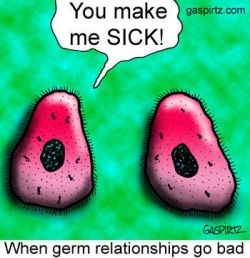
When You Try to Kill All Bad Germs You Kill The Good Ones, Too!
Pro-biotics are bacteria, germs that you kill when you kill bad germs. In fact, pro-biotics, when left alone, will deal with a lot of the bad germs.
Pro-biotics are used to treat all sorts of GI and urinary tract problems. When you take anti-biotics you kill the pro-biotics and should replace them, by the billions. I am not saying there aren't times when anti-biotics aren't necessary. When I have been bitten by ticks, I have been tested and taken anti-biotics. But I know the down side.
We need billions of germs in our bodies. For most of our lives they create a balance. We can live with some bad germs because they are balanced by the good germs.
Vaccinations have worked because they are in fact putting the germs in our bodies that helps build anti-bodies to fight the bad germs. Our immune systems can be over whelmed when there are too many bad germs, but if there are not enough, or none are the pro-hand sanitizers would have, then the body gets no practice in fighting them off.
When the Europeans came to America, they brought with them germs and diseases that were unknown on the American continents. Because they hadn't existed among the indigenous populations those people had not been able to build up anti-bodies and immunities to these diseases. They were less able to fight the germs and more likely to die when they got sick.
We have had an ability to fight off germs and disease. That would explain why, even though we do get sick, we are not all sick and dying from touching the 10's of thousands of shopping carts that we have all touched in our lives. Would we be able to do this as well after a lifetime of hand sanitizers, assuming they really work?
This Made Me Giggle!
This very clever video is based on the 50's style government documentary. I giggled over it. But I must say that having seen it, even though I scoff at what I call the over concern with germs in our society, I will probably start closing the toilet lid when I flush.
We Are So Afraid of Germs That We Are Making Ourselves Sick
We are so obsessed with germs we wash away all the good germs. .
Do You Think Americans Are Too Obsessed with Germs?
Are Germs the New Boogie Man, Sacring Even Each Other?
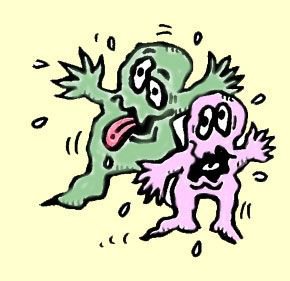
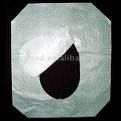
This Is a Real Pet Peeve of Mine, Warning: You May Not Want to Read
OK, I will give you evidence that toilet seat covers do nothing but make people feel better and clog the public toilets of America.
But heck, if people want to use them that is their business. However, this is my pet peeve. We assume that they use these covers because they don't want their bottoms to touch where my bottom (or yours) has been. Ok, fine. But when I walk into a stall and see a disposable cover on the seat I think, "Gee, some woman thinks her bottom shouldn't touch where mine has, but thinks its ok for me to have to use my hands to remove where her bottom was." Well, I don't say it quit that nicely. Grrr.....
Now are these fillers of land fill really helpful? Probably not. Toilet seat covers are psychological aids
Read the article if you don't believe me, it has lots of links to scientific studies, but the bottom line is: "All those paper covers do is mentally separate your backside from the countless bums that have occupied the same space. Before anyone gets their panties in a twist, let's listen to a few medical resources:"
Use your covers if you want and God bless. Just please remember the person behind you and get rid of them.
Everything I Need to Know About Germs I Learned in Kindengarten
1. Wash your hands when you go to the bathroom
2. Stop worrying about the germs you have been living with your entire life. They have always been on the phones and door knobs. People live healthy lives.
The Dry Humour of the Brits
I am really trying to find a serious video about germs, but I keep finding these funny ones. This one is long and you have to appreciate really dry humor (or humour in Britland), but it is worth watching.
The latest steel is rustless,
Our tennis courts are sodless,
Our new religion, godless
A. Guiterman. 1871- 1943
Can Anyone Say It Better Than George Carlin?
Adrian Monk: The Consummate Germ Phobe

Germs and H1N1 AKA Swine Flu
Now I have stated that I think that people are germphobic. I stand by that. However, remember that I have also stood by common sense hygiene practices. Wash your hands.
I will even go so far as to say that you should probably do more this winter. H1N1 is real and people have died. It does spread easily.
Cough into your sleeve if you don't have a tissue. And by all means wash your hands.
Hand sanitizers? I have read conflicting reports. They work, they don't work. The bottom line is that you should use soap and water when you can. If you can't, well, why not.
Here is and article that says that they are as good as hand washing. Don't believe it
Any Purchase Here Will Contribute to Heifer International: The Pay It Forward Entrepreneurial Charity
New Amazon Voting (Plexo)








Stars go here!




